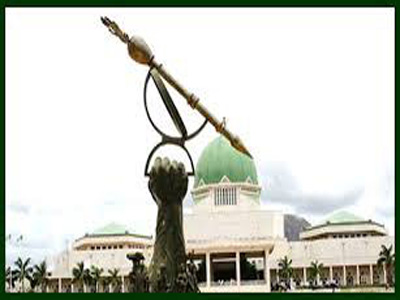Lawmakers have budgeted additional N30 billion for the renovation of the National Assembly Complex in the 2024 Appropriation Bill.
The N30bn earmarked for the renovation of the building was part of the N344.85bn budgeted for the National Assembly after they raised their allocations from N197.93bn.
The Assembly complex appears to have been constructed with intractable faults as huge sums of money is budgeted yearly for its renovation.
The additional N30bn brings to N60bn the amount being spent on the renovation of the National Assembly complex.
The N344.85bn, signed by President Bola Tinubu on January 1, is the highest ever allocated to the legislature.
Senate President, Godswill Akpabio, who is also the President of the National Assembly, had on June 30, 2023, declared that Tinubu would in December, last year inaugurate the N30bn different ongoing projects at the National Assembly.
Akpabio said, “The entire complex of the National Assembly is like a construction site due to ongoing general renovation work and fresh projects which would, on completion, be inaugurated by President Bola Tinubu in December this year (2023).”
The renovation was initially billed to be completed and delivered in August 2022 but the delivery date was later moved to January 2023 and then December 2023.
As of January 2024, the renovation of the National Assembly Complex is yet to be completed with skeletal work ongoing on the premises.
Our correspondent, who was at the site on Saturday, observed that the contractor, Visible Construction Company, was still at work.
An official of the construction firm, who spoke to our correspondent anonymously, said, “People keep blaming us for not finishing the project but those with the money have refused to release money to us.
“How are we expected to finish the work without money? If money is released to our company, the project will be done in no time.”
Earlier during an oversight visit by the Senate Committee on Federal Capital Territory, the site engineer, Tajudeen Olanipekun, blamed “fluctuations in the value of naira to the United States dollar for the delay.”
“This has hampered the importation of required materials and equipment, in addition to the need for more funds from the FCDA,” he said.


















